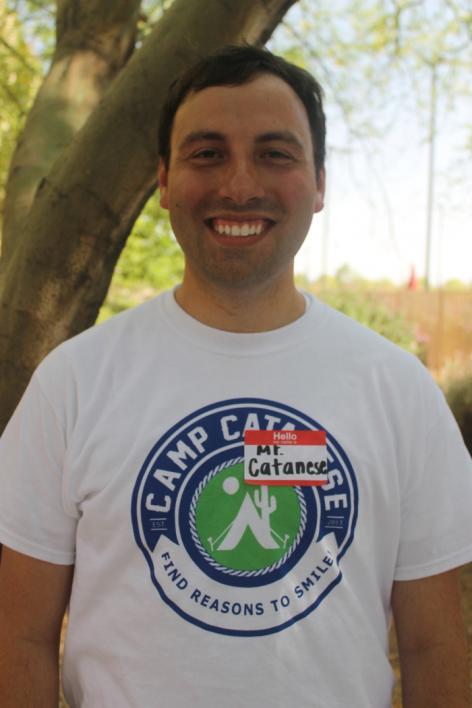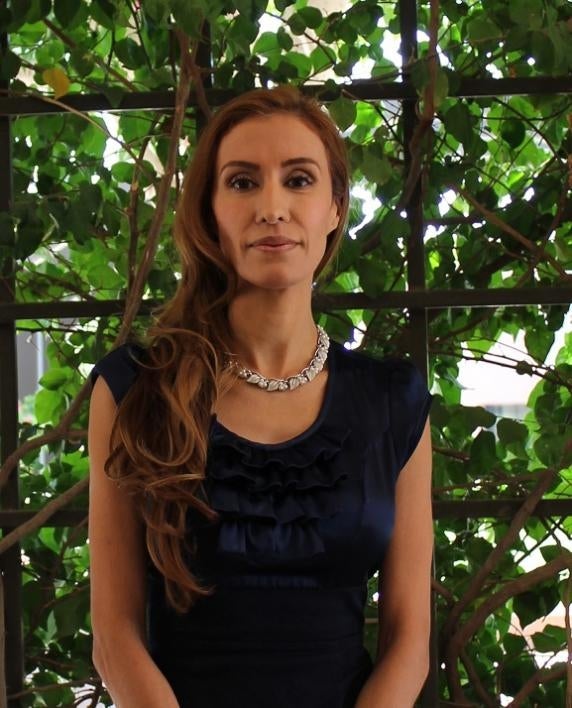ASU alumni's camp gets students excited about college

Camp Catanese 2016. Courtesy of www.campcatanese.com
In the past 10 years, Latino undergraduate enrollment at ASU has almost doubled. University student outreach efforts have played a key part in educating parents, first-generation students and transfer students about the resources available to them. This also includes supporting alumni and the quest to impart wisdom to a younger generation of Phoenicians.
Traveling north from Maryvale, a suburb in metro Phoenix, 150 students from 20 local high schools poured into ASU’s West campus in late May, ready to find out what it’s really like to be a Sun Devil for an entire week.
They had arrived at Camp Catanese, a summer camp hosted at ASU by Camp Catanese founder Jason Catanese to educate students about the benefits of pursuing a post-secondary education. The camp is a weeklong STEAM (science, technology, engineering, arts and mathematics) and college-access experience for high school students. Campers spend a week learning about college and participating in labs, sports, team-building activities and social events.
Catanese, a former Sun Devil, is a Teach for America teacher at Pueblo Del Sol Elementary School in the Isaac Elementary School District, a low-income community in Phoenix. He hopes that through this camp, students’ dreams of going to college are reinvigorated.
“The dream has been to put together a summer camp experience year after year where eventually these kids will become the counselors and help more kids from their community to realize that it doesn’t matter where you grow up, it doesn’t matter what ZIP code you’re from, it doesn’t matter what you look like, what your last name is,” Catanese said. “What matters is that you have it inside of you to do whatever it is that you want to do, and what matters most is that you can never doubt yourself and that everything you do in life you do it to serve other people.”
Although there was time to play sports, learn about the sciences and arts, and relax during downtime, there was also one special moment dedicated to getting campers excited about college.
Guest speaker and ASU associate professor Erika Camacho in the School of Mathematical and Natural Sciences in the New College of Interdisciplinary Arts and Sciences shared her story about the struggle and the dedication it took for her to succeed as a Latina living amidst poverty and violence in East Los Angeles. She went to poverty-stricken Garfield High School and was an alum of the famous math teacher Jaime Escalante, portrayed by Edward James Olmos in the 1988 film "Stand and Deliver."
“One of the things that I want you to walk away with today is, don’t let anyone tell you what you can do and what you cannot do. You’re the only one that can say what you can do,” she told campers.
During her climb to success, Camacho found mentors and people who believed in her, but she also encountered discrimination. This fueled her determination to prove to her naysayers, and herself, that she was intelligent, qualified and capable of overcoming stereotypes despite the cards life had dealt her.
Camacho encourages students to take a class with her at the West campus, saying, “My reviews might not be the best ones, because I am tough. I will expect the best, but I will give you the best from me.”
She challenged the mostly Latino audience in an effort to make students set high standards for themselves and strive to be the best.
“I understand where you come from, but I will train you,” Camacho said. “I’m like the military; I’ll break you and then I will make you.”
She shared her story of growing up in California, the anger that fueled her perseverance, her college experience at Wellesley — being different and not fitting in — and her teaching job at the Massachusetts Institute of Technology, all along the way breaking barrier after barrier for female minorities in STEM.
Camacho closed her inspiring lecture by highlighting the diverse population of counselors, professors and staff at ASU, a resource that other universities may not have. At ASU, Latino students can find people who can relate to them — important to students who, for the first time, will leave their mostly Latino community and will be out of their comfort zone when they attend college, she said.
Catanese said that during the weeklong camp, many kids said they hadn’t had a lot of hope for going to college before now, but all of that has changed.
“They actually know there are resources for them, there’s financial aid for them, there’s people that want to help them,” he said. “It doesn’t matter if your family makes $14,000 a year or $60,000 a year. What matters is that you have a dream and you follow that dream.”
Catanese plans on holding the camp again next year, inspiring more students to pursue their dreams and go to college.
More Arts, humanities and education

ASU professor's project helps students learn complex topics
One of Arizona State University’s top professors is using her signature research project to improve how college students learn…

Award-winning playwright shares her scriptwriting process with ASU students
Actions speak louder than words. That’s why award-winning playwright Y York is workshopping her latest play, "Becoming…

Exceeding great expectations in downtown Mesa
Anyone visiting downtown Mesa over the past couple of years has a lot to rave about: The bevy of restaurants, unique local shops…




